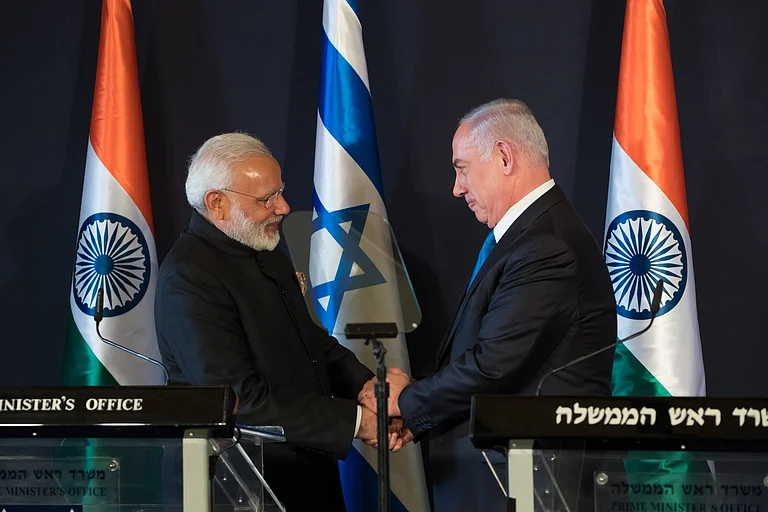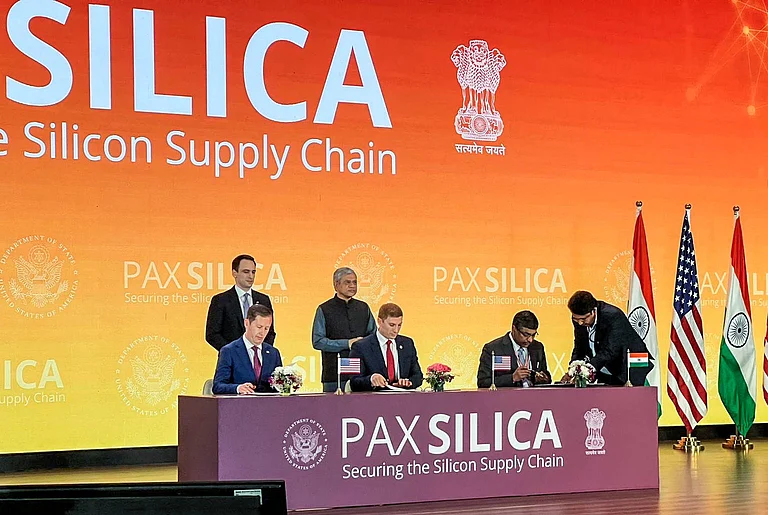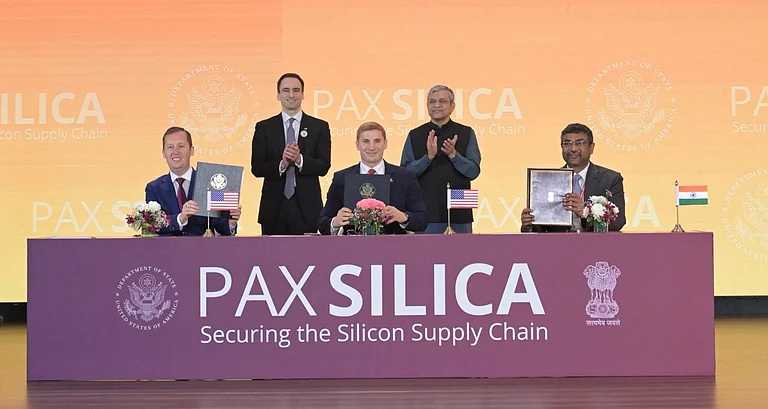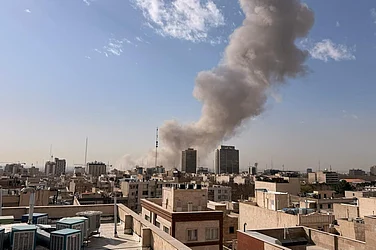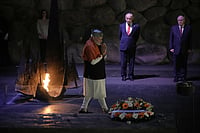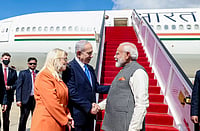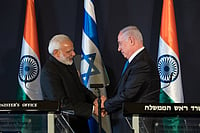
Prime Minister Narendra Modi stresses building ties with China based on mutual trust, respect and sensitivity.
President Xi Jinping characterises India and China as civilisational powers poised to deepen ties.
Both leaders agree to strengthen trade and investment, reduce trade deficits and enhance people-to-people exchanges.
Sunday’s meeting between Prime Minister Narendra Modi and Chinese President Xi Jinping in Tianjin, took place as the two Asian powerhouses have begun military de-escalation on the Ladakh border last October. While an hour-long exchange is unlikely to resolve the deep mistrust dividing Asia’s two biggest powers, both leaders signalled the importance of steadying ties at a time of shifting global trade dynamic triggered by United States President Donad Trump’s tariff disruptions across the world.
The optics before the meeting were crisp and business-like, a far cry from the informal meeting between the leaders in 2014, when Modi welcomed Xi to his home state, Gujarat. There was a formal handshake for the cameras, but no hug. Modi had a half smile while Xi looked serious. Yet, hours after the meeting, the read-outs from both sides were much more positive than the optics before the meeting suggested.
National Security Advisor Ajit Doval and Foreign Secretary Vikram Misri accompanied the Prime Minister among other senior officials of the Ministry of External Affairs. Notably absent was Foreign Affairs Minister Subramanyam Jaishankar, always a presence by the Prime Minister's side during talks with China. He was earlier India’s ambassador to China, which was when he met Modi, the then chief minister of Gujarat. The Prime Minister got to see Jaishankar in action during his frequent visits to China and took a liking to him. Nobody is sure why Jaishankar skipped the SCO meet; perhaps he had other pressing matters to take care of or is unwell. Nobody is quite sure at the moment.
In his opening remarks, Modi spoke about his meeting with Xi in Kazan and how that gave a positive direction to their relationship. "After the disengagement at the border, an atmosphere of peace and stability is now in place," he said. Doval’s recent meeting with the Foreign Minister of the People's Republic of China, Wang Yi, in Delhi, led to an agreement on border management that hopefully would hold the peace and tranquility on the border, he said.
"Our cooperation is linked to the interests of 2.8 billion people of our two countries,’’ the Prime Minister said, while reminding Xi that the relationship must be based on mutual trust, respect, and sensitivity,” politely setting the red lines. He also mentioned the progress so far in ties with direct flights now resumed and the Kailash Mansarovar Yatra in progress.
Ties Frozen Since Galwan Thaw
"Modi's remarks represent the resumption of bilateral ties after agreement on border management at Kazan. It shows a gradual normalisation of the bilateral ties after attempts to maintain peace and tranquility being pursued in the border areas between India and China. India has also shown its commitment to improve the relationship based on mutual trust, respect and sensitivity. One can be cautiously optimistic that the bilateral relationship will improve gradually,’’ says Prathibha, who works on China at the New Delhi-based Manohar Parrikar Institute for Defence Studies and Analyses.
Dragon and Elephant Again?
President Xi’s statement also reflected China’s desire to repair bilateral relations as he stressed on the strategic nature of the relationship and India and China’s responsibility to the Global South.
"Both nations need to handle our relationship from a strategic and long-term perspective. We must also step up to our historic responsibilities to uphold multilateralism, a multipolar world, and more democracy in international institutions and work together for peace and prosperity in Asia and around the world," he said. Here, Xi was pointing to the feeling among developing countries of the need to change the Western-oriented world order that paid little attention to the problems of the Global South.
"We are the world's two most populous countries, and we are also important members of the Global South. We both shoulder the historical responsibility of improving the well-being of our two peoples, promoting the solidarity and rejuvenation of developing countries, and promoting the progress of human society. It is the right choice for both countries to be friends who have good neighbourly and amicable ties, partners who enable each other's success, and to have the dragon and the elephant come together," Xi said.
What Do Modi-Xi Talks Really Mean?
It is clear that both the Asian rivals are now ready to reset their often acrimonious and deep-seated mistrust of each other, propelled by economic necessity and flux in the international geopolitical situation. How far this goes, more so because of China’s close alliance with Pakistan, remains to be seen. At the same time, if the United States and India can in the coming months work out a trade agreement, the situation could change. But for both India and China at the moment economic necessity is driving the rapprochement.
In a signal to the Trump administration, Modi emphasised on strategic autonomy, during talks with Xi. For the Prime Minister taking dictation from another country, be it the world’s only Superpower is a big no-no. In a recent poll, Indians strongly endorsed Modi’s decision to continue buying Russian oil despite Trump’s threat.
"[The] Prime Minister noted that India and China both pursue strategic autonomy, and their relations should not be seen through a third country lens. The two leaders deemed it necessary to expand common ground on bilateral, regional, and global issues and challenges, like terrorism and fair trade in multilateral platforms,’’ the MEA said in a statement released after the meeting.
Analysts say that the meeting was on expected lines. Both Modi and Xi are keen to repair ties at the moment. China and Russia are also hoping that the shock of being slapped by a 50 percent tariff could persuade Modi to gradually move away from the US. China-India relations had sourced dramatically since India became a part of the QUAD, the US, Japan, Australia grouping that aims to contain China’s growing economic and military power in Asia. That Donald Trump is likely not to attend the QUAD summit in New Delhi later in the year, must be music to Beijing’s ear.
Today’s meeting between Modi and Xi, as well as the decisions that would be taken at the SCO summit tomorrow, will be keenly watched in world capitals. The United States and its allies regard the SCO and BRICS groupings as attempts to break away from the Western dominance of international institutions and carve out a China-Russia dominated world that is attuned to the needs of the Global South. During talks with Modi this morning, Xi spoke of India and China’s responsibility to the nations of the Global South. What happens in the SCO meeting tomorrow will be significant.








